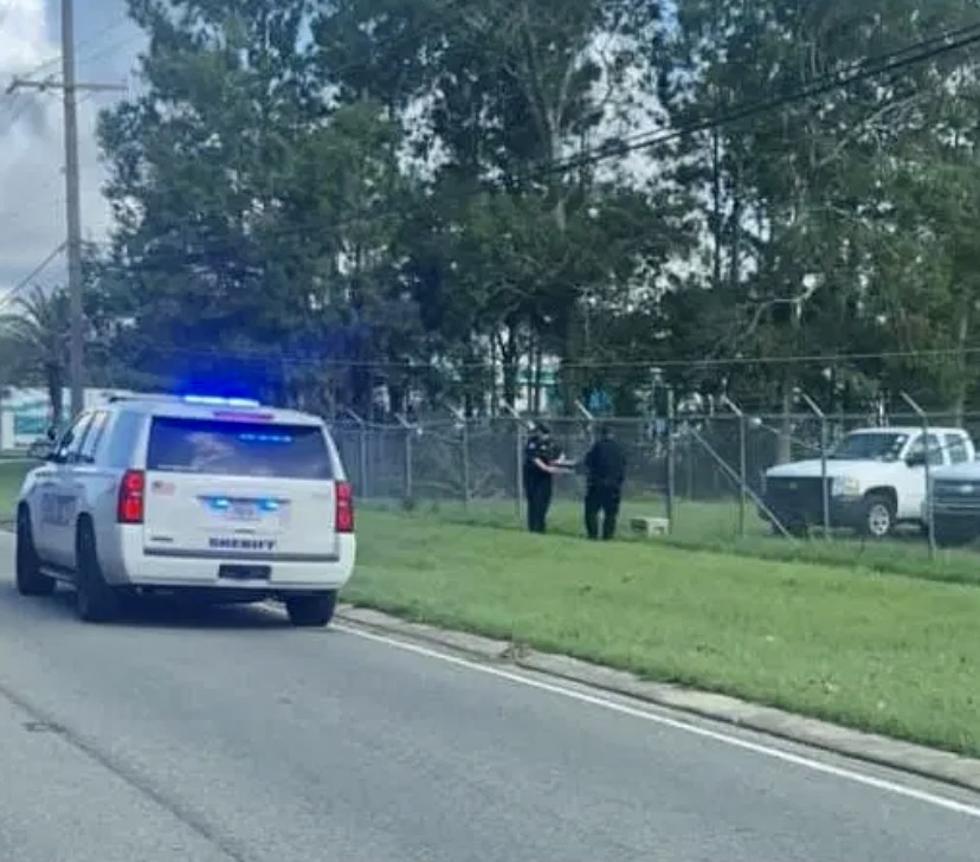
No One Knows How Many Suspects Are Killed By Police Each Year. Here’s Why.
Are more suspects being killed by law enforcement in 2016, or has it been this way for decades, and the only thing that’s changed is that everyone carries around little television studios in their pockets these days?
It’s an interesting question, and one without a definite answer. That’s because - amazingly - there is absolutely no legal requirement for local police departments to report or even record their statistics to any national agency.
There are over 18,000 police departments across the country, and none of them are required to submit their statistics to any federal database. A lot of them do, but it’s entirely voluntary, so there’s no real way to determine if there has actually been an increase in the number of suspect deaths, or if it just seems that way because more people are recording them on their cell phones.
It makes tracking historical data virtually impossible as well, so there’s really no way to know if more suspects are being killed today than 10, 20, 30, or 60 years ago. On the one hand, all the videos we keep seeing of suspects being killed makes it seem like this level of force is on the rise, but who's to say that it hasn’t been going on for decades? Because it probably has, if other related statistics are any comparison. Take incarceration rates, for example...
According to the NAACP, the United States accounts for 5% of the world’s population, yet we’re responsible for holding a staggering 25% of the world’s prisoners, at a cost of around $70 billion dollars. One in every 31 adults are incarcerated in the US right now.
Think about that for a minute.
Now add in race. I know a lot of people never want to go there, but we can’t be scared of the truth. Or, I guess we can and probably should be, because maybe then we’ll do something to make the world better tomorrow than it is today.
Blacks are incarcerated at nearly six times the rate of whites. Blacks and Hispanics accounted for 58% of all prisoners in 2008, despite making up only 1/4th of the total US population. That means over half the people in prison in 2008 were from minority groups that make up just one quarter of all the people in the country.
But that’s just people in prison. Since we have no reliable, complete data regarding the number of suspects killed - white, black, hispanic, or otherwise - before they’re convicted, we can only go off the data we do have, and extrapolate from there.
The sad thing is, it doesn't have to be this way, because there's no clear reason why local law enforcement can't report their statistics to a federal agency.
After all, we have federal databases tracking the prescriptions we get filled at local pharmacies, or how many packages of cold medicine we buy when we get the flu. Every school district across the nation submits massive amounts of student performance data to the federal government every year, and payroll departments nationwide report earnings information to the IRS every day - but we somehow don’t require local law enforcement to submit statistics to the federal government. It makes no sense.
The FBI tracks data as best it can, but since everything is voluntary, the numbers are incomplete.
THERE IS NO FEDERAL AUTHORITY TRACKING THE USE OF DEADLY FORCE BY POLICE IN THE UNITED STATES.
We live in a time when Facebook, Twitter, Instagram, Snapchat, and a million other apps and websites collect huge amounts of data on all of us every second of every day. We clearly have the technological infrastructure necessary to log every single call made to police, along with all of the follow-up paperwork and documentation for each and every case. It could all be done easily and automatically, but it isn’t. Why not?
Regardless of how you feel about movements like #BlackLivesMatter (here’s what I think, if you care), it should be alarming that there is no required federal reporting being done by local police departments regarding use of force. None. Not even when suspects are killed during an arrest.
Isn’t that something everyone should care about, despite how we may feel about any given political topic or social issue?
We live in the Information Age. Data is important, not only for boring things like statistical analysis, but for slightly less boring things like sweeping policy changes that might affect all of us. Consider for a moment the fact that any national policy decisions the federal government makes concerning law enforcement are, by definition, based off of incomplete data and missing information. That’s kind of scary.
On the positive side, at least there’s a National Decertification Index that tracks law enforcement officers who have been stripped of their licenses for misconduct - but the bad news is that it’s also entirely optional. Only 40 states have participating departments, and even then, no one is even required to check the database when hiring new officers. In theory, this means that a bad cop who was terminated from one department can still go somewhere else, pass the necessary licensing requirements, and be hired on to another police force without anyone ever knowing he’d been previously stripped of his law enforcement license for misconduct. That's a pretty big deal, and a huge crack for the "bad apples" to slip through, undetected.
Think about it for a second...
Somehow, we can maintain a sex offender database capable of tracking everyone from convicted child molesters to misguided teenagers who get hit with child pornography charges for taking nude pictures of themselves, but we can’t have a mandatory database of bad cops? I can miss a car payment one month, and that information is immediately communicated to several credit reporting agencies across multiple continents, but it’s too much of a hardship to have to enter Officer Joe Bob’s name into a federal database after he’s terminated for misconduct, or to check that database for his name when he applies for a job with another police department? Seriously?
We can do better, America. We must do better.
I know the data will probably be scary. I know it’ll probably upset people. I know there are likely to be crazy numbers that cast a harsh spotlight on systemic problems and biases plaguing local law enforcement agencies across the country, because that’s exactly what all the data we do have shows.
Check out this data from the Vera Institute of Justice, which tracks incarceration statistics. This information is for Calcasieu Parish, but you can put in any location you want and find disturbingly similar statistics from counties in all 50 states.
- Total Population (2014)
89,665 White - 70%
32,738 Black - 25%
3,900 Latino - 3%
2,064 Asian/Pacific Islander - 2%
128,367 Total - Incarcerated Count (2014)
682 Black - 54.6%
531 White - 42.5%
32 Latino - 2.5%
2 Asian/Pacific Islander - <1%
1,247 Total
These local numbers clearly reflect the NAACP's national statistics. Despite making up only 25% of the population of Calcasieu Parish, black prisoners accounted for over half (55%) of the people incarcerated in 2014, while white people made up 70% of the population and accounted for only 43% of the people incarcerated.
Some folks will look at these numbers and determine that black people are convicted more often than white people because they commit more crimes, and that might be true. However, other people will look at the same data and conclude that black people are probably being disproportionately punished when compared to white people for committing similar crimes, which might also true.
Both of those are the wrong conclusions, though. They're wrong, because we don't have enough data to make valid conclusions. All we can do with incarceration data is look at how many people actually went through the court system and were convicted and sentenced to prison terms. We don't know how many people never made it past the arrest or the traffic stop.
We also don't know how many people could afford better lawyers, or had more lenient judges, or any number of other factors that go into determining who to send to prison and who to let slide with something like probation or some other slap on the wrist.
The data is also incomplete when it comes to explaining things like the massive spike in the incarceration rate (see the chart below) of black prisoners between 1996 and 1998, or the sudden dip between 1998 and 1999, only to see it spike back up again between 1999 and 2000, where it remained fairly consistent for the next several years until one more slight dip in 2013.
The point of all this is that we can't solve a problem without all the facts, and there is absolutely no good reason that a key piece of the puzzle remains unavailable to us, to you, or even the federal government. Until every local police department in the nation is required to submit their statistics to a national agency, we'll never know the full extent of what's going on. We won't be able to properly spot trends - both positive and negative - and we won't be able to make informed decisions about how to improve things for everyone.
No one wants a high crime rate. No one wants to see a bunch of people getting arrested and tossed in jail. And no one wants to see suspects being killed before their chance at due process, if their deaths could have be avoided. (The simple fact here is that some suspects just make it impossible to arrest them safely, as they pose a clear and present danger to both the officers attempting the arrest as well as any civilians that may be present while it's happening. But without accurate data, we are unable to draw any conclusions about how many times that actually happens, or how many times a suspect's death could have - and should have - been prevented.)
Yes, if we were able to collect historical data and start requiring police departments to report their current statistics to the federal government, we would probably find alarming trends. Racial tensions might be strained even more than they are right now, if the numbers turn out to prove what a lot of people already suspect. However, it’s important to have the data - because it’s important to know the truth.
And the truth, as a pretty famous guy once said, shall set you free.
More From 107 JAMZ








